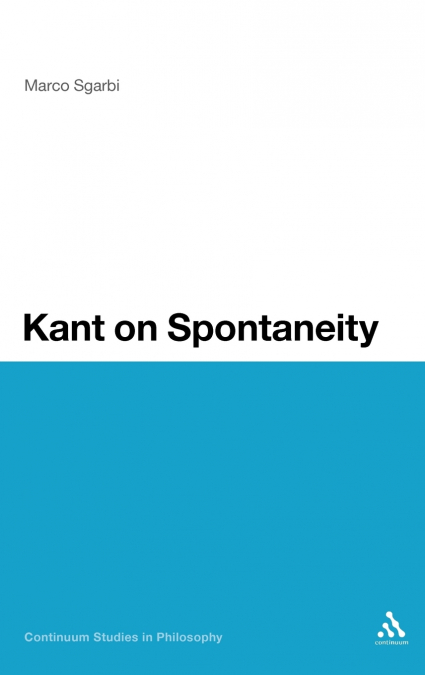
Marco Sgarbi
'The concept of spontaneity is central to Kant’s philosophy, yet Kant himself never dealt with it explicitly. Instead it was presented as an insoluble problem concerning human reason. The ambiguity surrounding his approach to this problem is surprising when one considers that he was a philosopher who based his theoretical programme on the critique of the faculties of knowledge, feeling and desire. However, this ambiguity seems to have avoided up to now any possible critique. This highly original book presents the first full-length study of the problem of spontaneity in Kant. Marco Sgarbi demonstrates that spontaneity is a crucial concept in relation to every aspect of Kant’s thought. He begins by reconstructing the history of the concept of spontaneity in the German Enlightenment prior to Kant and goes on to define knowing, thinking, acting and feeling as spontaneous activities of the mind that in turn determine Kant’s logic, ethics and aesthetics. Ultimately Sgarbi shows that the notion of spontaneity is key to understanding both Kant’s theoretical and practical philosophy.'